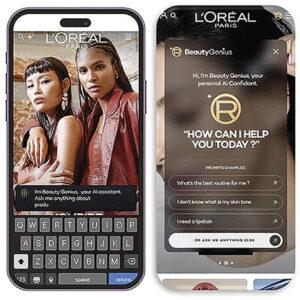Informed choices and targeted solutions
According to Euromonitor’s Global Consumer Trends 2025 report, consumer behaviour is fundamentally shaped by the rising cost of living, the need for sustainability and expectations of physical and mental well-being.
This article is available for reading in Trade magazin 2025/2-3.
Plans and actions to remain healthy
Vitality is trendy and we are looking at ageing differently than we used to. Consumers now not only want to live longer (lifespan), but also healthier and better (healthspan) – 52% believe they will be healthier in the next five years than they are now. This new approach is reflected in the growing demand for preventive and targeted solutions: global sales of vitamins and dietary supplements have been increasing steadily in recent years and could reach nearly USD 40bn in 2025. Plus age-related problems are treated with specific products, and the proven effectiveness of these is consciously monitored.

Consumers now want not only a longer, but also a healthier and better life
Spending more wisely
Added value has become an expectation and we are approaching shopping strategically. Companies need to respond to this with solutions that deliver clear benefits and tangible, useful initiatives if they want to retain the attention of their target group. Prolonged economic uncertainty has set a new norm for spending. The balance is constantly tipping when it comes to purchasing decisions: buying a product or service will only satisfy an immediate need or will it be useful in the future? Consumers don’t always consider the cost-effective option to be the best one. Thus, in the case of beauty and hygiene products, the growth in sales of premium products may exceed that of mass products. Shoppers focus on overall value and expect brands to deliver long-lasting, useful initiatives.
Eco-logic
The selection of sustainable products continues to depend on individual values, but consumers are now looking closely at how well they fit their needs. Sustainability claims are no longer accepted unconditionally, so it is best for brands if they are able to present tangible evidence. Even if the economic uncertainty has brought a temporary shift towards more economical options against green characteristics, this hasn’t led to a complete turnaround. More than 60% of consumers were still seeking to make a positive influence on the environment in 2024, and two-thirds remain concerned about climate change. However, although 52% of consumers find eco-labels reliable, only 15% are willing to pay more for such products.

Six out of ten shoppers in 2024 were still trying to make a positive impact on their environment
Selective focus
Consumers have a difficult task when they navigate the seemingly endless choices between the notifications that inundate them and the seemingly endless options available to them. Between January and August 2024 more than 23,000 new brands were launched online in 32 countries and 54 FMCG categories. Obviously, the solution is not to reduce the number of options: open, honest communication and support for intuitive discovery are necessary, for example through clear labels on packaging, a “streamlined” shopping experience, personalised recommendations and quality customer service.
AI-ambivalence
Artificial intelligence has been put on a pedestal over the past few years, but wider AI use and the failures it has brought have raised scepticism and concerns about the technology’s supposed impact on the labour market. 43% of consumers consider generative AI a reliable source of information, with 25% citing relevant product recommendations as its main strengths when shopping. For businesses generative AI is already proving to be a powerful tool – 41% of professionals said their company has begun to invest more in digitalisation in recent years, as a reaction to changing consumer habits, and 65% said they have such plans for the next five years. Despite its many benefits, it is worth refraining from over-reliance on AI, as human oversight is a fundamental requirement and interpersonal touchpoints remain an integral part of interactions with brands. //

L’Oréal’s always-on, generative AI-based beauty assistant aims to answer consumers’ questions
Related news
GLP 1: passing hype or a lasting trend?
🎧 Hallgasd a cikket: Lejátszás Szünet Folytatás Leállítás Nyelv: Auto…
Read more >Global front lines on the food essentials market: beyond bread
🎧 Hallgasd a cikket: Lejátszás Szünet Folytatás Leállítás Nyelv: Auto…
Read more >Related news
Festival buzz at the 60th anniversary EuroShop trade fair
🎧 Hallgasd a cikket: Lejátszás Szünet Folytatás Leállítás Nyelv: Auto…
Read more >Historic price reduction at ALDI
🎧 Hallgasd a cikket: Lejátszás Szünet Folytatás Leállítás Nyelv: Auto…
Read more >








